Meet the Fellows
2024 Fellow
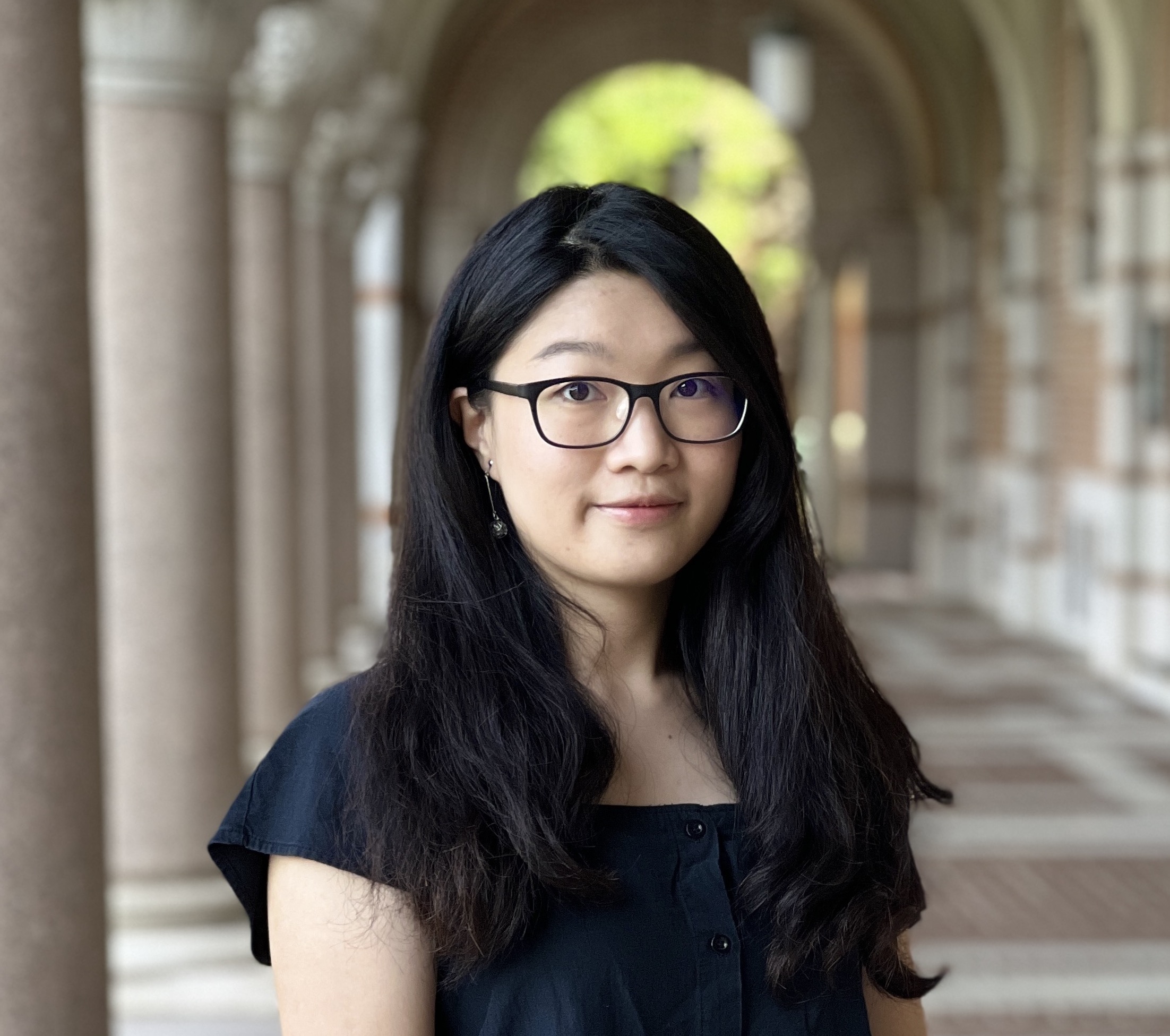
Chia Hsieh
Chia completed her doctoral work at Rice University Department of Ecology and Evolutionary
Biology as a broad-thinking ecologist. Her work uses large datasets to investigate
the ecological and evolutionary processes shaping spatial patterns of biodiversity.
Chia's research at MSU integrates community ecology and evolution to patterns of bird
biodiversity, from regional to global scales.
For her community engagement initiative, Chia is developing a journal club that bridges
important concepts across ecology and evolution. She also plans to teach workshops
for EEB members on quantitative tools in community ecology.
EEB mentors: Elise Zipkin in integrative biology and Fred Janzen at Kellogg Biological
Station in the
departments of fisheries and wildlife and integrative biology.
2023 Fellow
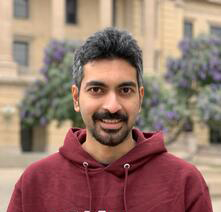
Ashish Nerlekar
Ashish completed his PhD at Texas A&M University where his research focused on the ecology, conservation and restoration of grasslands and savannas. As an EEB postdoc, Ashish continues to improve the scientific and public recognition of grasslands by exploring what kinds of plants are characteristic of global ancient grasslands, and how might these plants get affected by large-scale tree plantations on tropical grasslands.
He is organizing a seminar on tropical ecology and conservation to showcase cutting-edge research being done by scientists based in the Global South. Additionally, Ashish taught a course for EEB students aimed at learning best practices to decolonize ecology by exploring the consequences of "parachute science" - science conducted in another country without meaningfully engaging with the local stakeholders. Current position: Ramanujan Fellow, Department of Biology, IISER Pune, India
EEB mentors: Lars Brudvig and Lauren Sullivan in plant biology.
2022 Fellows
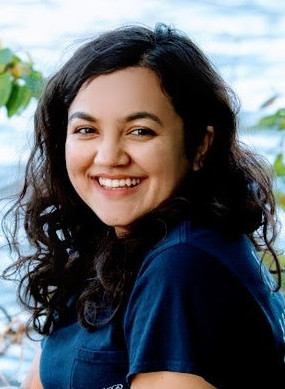
Ashwini Ramesh
Ashwini explores the impact of climate change on individual (within-host) infection dynamics using a combination of mathematical modeling and experiments in collaboration with the Elemental Health Institute in MSU’s College of Human Medicine. With this work she hopes to discover new ecological explanations to improve individual and ecosystem health.
For her community engagement initiative, Ashwini has organized the Art in Science competition in EEB, inviting the EEB community to submit outstanding data-representation, photographs, traditional or digital art to tell a compelling story of the EEB members’ science—research images that are not just scientifically meaningful but also beautiful. Ashwini also organizes the weekly EEB coworking group to help members stay accountable to their goals in a fun way.
Ashwini is currently a G. Evelyn Hutchinson Postdoctoral Fellow at Yale University.
EEB mentors: Nina Wale in microbiology and molecular genetics and Christopher Klausmeier
in the
departments of plant biology and integrative biology.
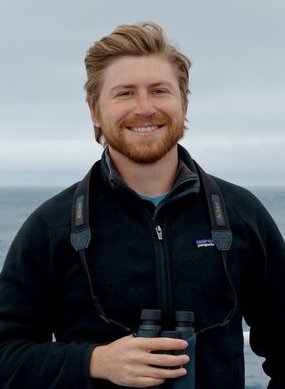
Casey Youngflesh
Casey's work at MSU focused on using quantitative tools to address questions in global change ecology and biodiversity. He is particularly interested in diversity patterns of birds across the Americas. Casey also worked on an IBEEM-funded project to understand the links between environmental variability and life history traits, and what that can tell us regarding which systems might be most susceptible to climate change.
As a presidential fellow, Casey gave public talks at forums such as the MSU Biology on Tap series and local chapters of the Audubon Society. Casey also served as an instructor for the Careers Pathways seminar course at MSU, which provides students with a broad range of professional development opportunities, from sessions on non-academic career possibilities to best practices in science communication.
Casey is now an assistant professor of Biological Sciences at Clemson University.
EEB mentors: Phoebe Zarnetske in integrative biology, Andrew Finley in forestry, and
Kyla Dahlin in geography, environmental, and spatial sciences.
2021 Fellows
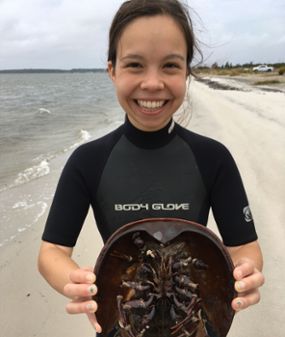
Cinnamon Mittan-Moreau
Cinnamon's research as a presidential postdoc combined thermal physiology, genomics, and captive rearing (in partnership with US Fish and Wildlife Service and John Ball Zoo) to inform the conservation of the critically endangered Michigan butterfly, Mitchell’s Satyr. Cinnamon uses genomic data to understand and support species’ ability to adapt to environmental change and works with conservation practitioners to incorporate genetic data into management actions and policy.
Cinnamon co-created and instructed the “Introduction to Field Biology Workshop.” To improve access to fieldwork experience, this week-long workshop at the Kellogg Biological Station introduces undergrads to common methods, gear, and safety protocols integral to conducting fieldwork in the biological sciences. The course encompasses a variety of field sampling experiences and techniques and ends with a professional development seminar to increase student confidence in applying to research opportunities at MSU and beyond.
Cinnamon is currently a Smith Conservation Fellow.
EEB mentors: Sarah Fitzpatrick and Nick Haddad in integrative biology and the
Kellogg Biological Station and Mariah Meek in integrative biology.
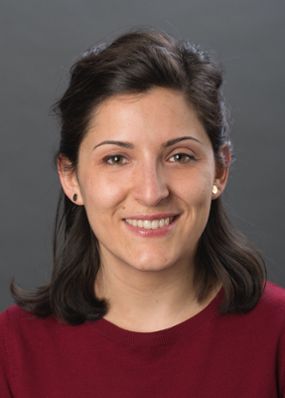
Daniela Palmer Droguett
Daniela is an evolutionary biologist whose research focuses on the evolution of genome structure and function, especially in relation to variation among the sexes. Her work at MSU focused on the genomic evolution of sex differences and the evolutionary processes that shape sex chromosomes.
As a presidential postdoc, Daniela led a reading group for EEB members to examine how systems of oppression such as colonialism, imperialism, and racism impact academic institutions and fields of study both historically and in the present.
Daniela is currently is an assistant professor of biology at University of Texas Arlington.
EEB mentors: Fred Janzen in fisheries and wildlife, integrative biology, and the
Kellogg Biological Station and Emily Josephs in plant biology.
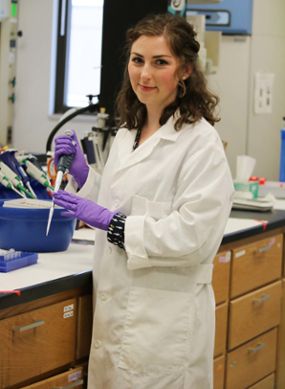
Olivia Smith
Olivia's research examines the best approaches to manage agricultural systems to simultaneously promote environmental wellbeing, conserve biodiversity, control agricultural pests, produce safe and sufficient food, and support farmer livelihoods and wellbeing. As a presidential postdoc, Olivia's research focused on how the environment shapes the probability of zoonotic pathogen spillover in agricultural ecosystems across a network of cherry farms.
Olivia started an EEB Collaborative Research Group for students and postdocs, which met weekly over a two year period and resulted in publications in Nature Ecology and Evolution and TREE. Olivia also started monthly eeBirding wherein EEBers gather to "bird" at parks around the Lansing area. She founded it after hearing multiple people say they wanted more opportunity for in-person social events during the pandemic.
Olivia is now an assistant professor at Michigan State.
EEB mentors: Catherine Lindell in integrative biology and Jen Owen in fisheries and wildlife.